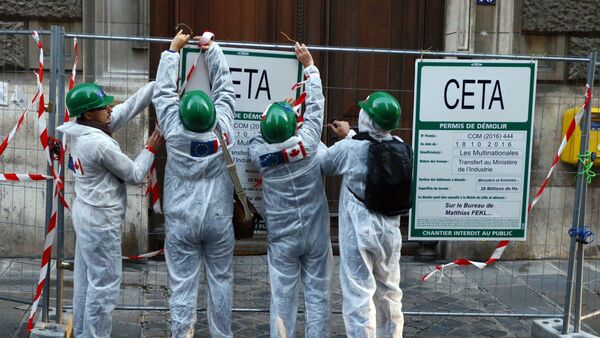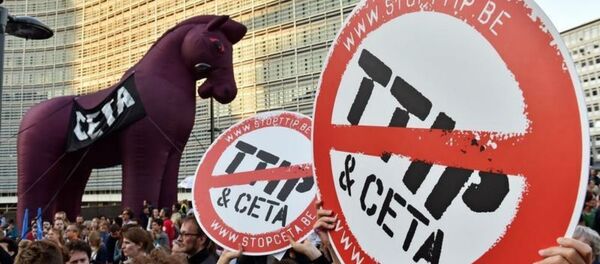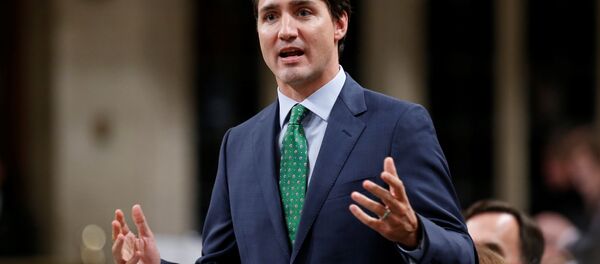Concerned with CETA's impact on labor, environmental and consumer standards, Wallonia blocked the deal earlier in October, but Belgian politicians overcame their differences on the major-free trade agreement this week. The document is expected to be signed later on Sunday.
However, it is the arbitration mechanism that CETA will introduce that is the real issue for the German politician and other critics of the agreement.
"This system, known as investor-state dispute settlement, allows … big businesses to sue governments. This has been the key issue of the deal. This was at the heart of all the debate," he said. "I am against this system. Canada and EU members are advanced countries which do not need these special courts."
Hunko appeared to have an issue with the way CETA talks were conducted.
Hunko was also critical of how mainstream media was covering Wallonia's opposition to the deal.
"At some point [media outlets] started to present CETA as a very progressive deal, saying that it has been drastically altered and only small Wallonia, a stubborn region, was against it," he said.
The politician emphasized that "millions, the majority of population" in many countries, including Germany have "been critical" of CETA. "I am happy that [Minister-President of Wallonia Paul Magnette] adopted a principled stance on the issue," he said.





